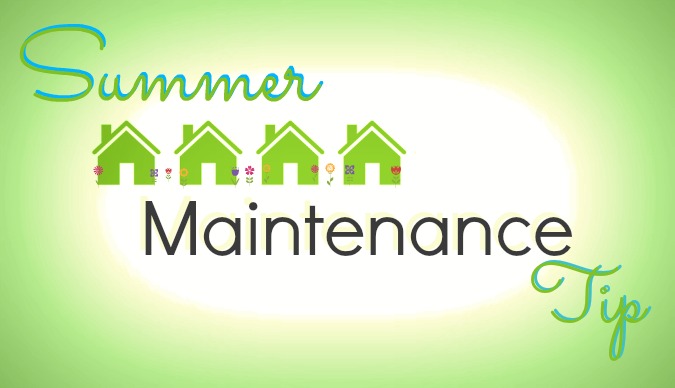
As the owner of an investment rental property your profit model is pretty simple. You want to keep expenses as low as possible so you can generate as much rental income as possible.
But rental properties sometimes seem to have a mind of their own. Just when you think you are swimming towards the black, a property can kick out the most unexpected repair issue at the most inopportune moment.
In this post, learn about rental property maintenance tips that can help you keep your investment properties in tip-top shape while keeping your repair expenses reasonable.
Tip 1: Check for water leaks.
According to the U.S. Environmental Protection Agency (EPA), the average home can leak out 90+ gallons per day undetected. In a year’s time, this can add up to 10,000 or more gallons of water paid for but not used. Just checking for leaks regularly and fixing found leaks can save up to 10 percent on your annual water bill.
Here are some easy tips to check for leaks:
- Get a packet of Kool-Aid and empty it into the toilet tank. If you see colored Kool-Aid in the bowl, this means your toilet is leaking.
- Look for small areas where water is collecting under sinks, around toilets or tubs or outside beneath spigots.
- Turn off your water and take your water meter reading. Wait two hours, then take another reading. If your meter shows water usage, you have a leak.
Tip 2: Exterminate every 3 months.
As temperatures begin to warm up for spring, flowers begin to bloom, trees sprout leaves and soon the pests are also back in force. For this reason, a regular part of management for rental properties is always to resume regular extermination services. The typical schedule is every three months, but you may need to exterminate more frequently based on the history of your properties. Regular extermination will save you money because you can spot major issues before they become major.
Extermination also gives you the opportunity to do a quick premises-check and notice where there may be easy-access points for small animals through loose shingles or eaves. By repairing these small issues right away, you never face the cost of rodent removal services, which can be a pricier extermination service.
Tip 3: Test all smoke alarms.
Regular testing of smoke alarms is not only required by law, but it can also save you on the priciest property cost of all – fire damage. The average smoke alarm (wired or battery-powered) should last a decade if well maintained.
If any of your properties do not have carbon monoxide detectors, you should also consider installing these. They will last five years if well-maintained and could save you from the kind of costly and damaging legal action that could follow you for years. Ideally, testing should be done monthly, but you could also test quarterly when you have extermination done or during any regular service you have on your calendar.
Tip 4: Re-caulk and re-grout as needed.
As mentioned in Tip 1 here, water damage can quickly become a major expense if it goes undetected for too long.
For this reason, one of the best practices is to re-caulk and re-grout as soon as you see signs of wear and tear. Once that waterproof seal is compromised, water can begin to seep down beneath windows and behind tubs or shower stalls.
If the water begins to pool in an unseen location, it can quickly turn to mold, mildew, and rot. At this time you have a much more invasive and costly repair on your hands and one that could also leave you without a viable property to rent until the repairs are completed.
Tip 5: Change air filters more frequently
Depending on what kind of HVAC system you have, you likely have some type of air filter that can either be removed and replaced with a fresh filter. This is a minor expense that is often overlooked but can be costly if not done. By just cleaning or changing your air filter regularly (at least monthly), you’ll save money on your energy bills.
More importantly, this type of minor maintenance can keep your HVAC system working at peak efficiency and safe from expensive repairs caused by overheating, blocked air ducts, debris in the motor and other pricey fixes that can each be caused by clogged air filters.
Tip 6: Schedule a water heater flush annually.
Even tankless hot water heaters can over time accumulate sediment buildup. Taking the time to descale and/or flush your hot water heater once or twice annually can ensure your drain valve never clogs and your water bill stays reasonable.
Tip 7: Do an annual HVAC inspection and tune-up.
Your HVAC needs regular maintenance both for efficiency and safety reasons. A well-maintained HVAC system will last for years for the cost of an annual cleaning, tune-up and minor repairs when parts wear out or need lubrication.
In the same way, A Level Up Realty LLC. recommends an annual inspection and tune-up to ensure all connections are fire-safe and the vital parts of the unit are ready for the heavy workload.
Tip 8: Get your yard and garden ready for spring.
Winter weather can be particularly hard on your properties’ exterior landscaping. As temperatures slowly climb, this is a great time to prep your yard and garden for the spring planting by removing winter debris, adding fresh dirt and mulch where needed and pruning bushes and trees.
With these eight rental property maintenance tips, you can spend less on the maintenance needs of your rental properties and have more profit left over to enjoy.
Contact our property management specialists today by calling 520-332-4114




